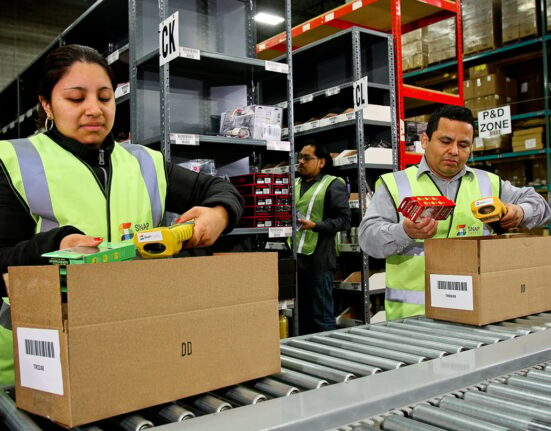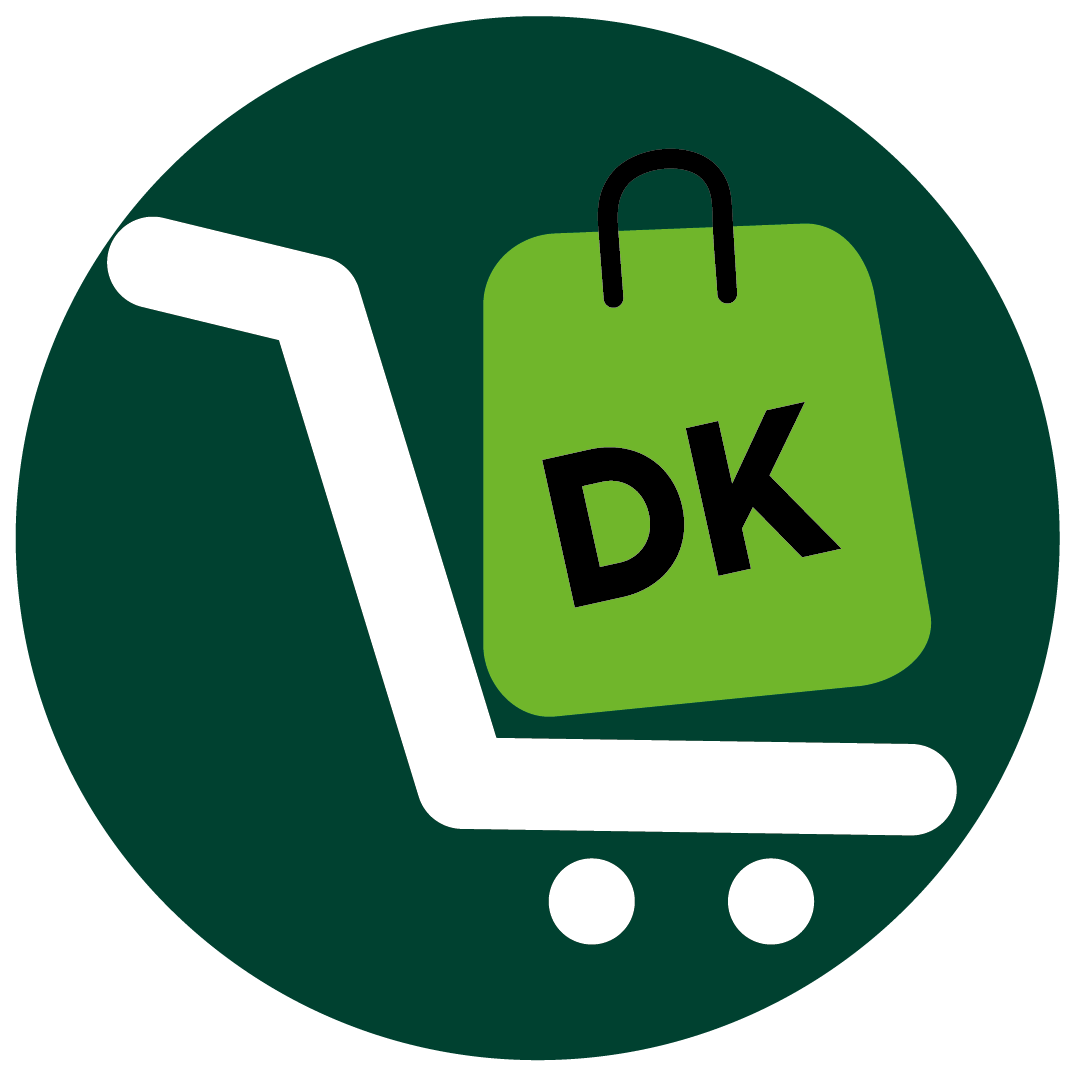Finding right dropshipping suppliers is a pivotal step towards the success of your online store. The article serves as a practical guide in this crucial phase. While it’s relatively straightforward to find numerous suppliers on platforms like Google, Alibaba, and AliExpress, the challenge lies in choosing a supplier that aligns with your business needs and ethos.
The key to making this decision involves direct communication; this means getting on the phone and having real conversations with potential suppliers. This approach not only helps in gauging the suitability of the supplier but also establishes your seriousness about forming a sustainable business relationship.
The article delves into how such direct interactions can lead to more favorable deals and access to unique products, providing you with a significant advantage in the dropshipping market. It emphasizes the importance of building long-term relationships with suppliers, which is instrumental in creating a lasting and valuable brand, far outweighing the benefits of short-term sales.
Dropshipping How to Contact Suppliers:
1. Identify Potential Suppliers
2. Prepare to Contact Suppliers
3. Initiate Contact
4. Build a Relationship with Suppliers
5. Evaluate Supplier Responses
6. Navigate Supplier Terms and Conditions
7. Finalize Supplier Relationships
1. Identify Potential Suppliers
Dropshipping how to contact suppliers, identify potential suppliers.
When it comes to identifying potential suppliers for your dropshipping business, there are several strategies you can employ.
Research online directories and marketplaces
Utilize search engines and social media platforms
Conducting targeted searches on search engines like Google or Bing can help you discover suppliers that may not be listed on directories. Additionally, social media platforms like Facebook, Instagram, or LinkedIn can be useful for finding suppliers through groups, pages, or hashtags related to your industry.
Join industry-specific forums and communities
Engaging with industry-specific forums and communities can provide valuable insights and connections. Participating in discussions, asking for recommendations, and networking with other dropshippers can lead to discovering reliable suppliers.
Keep in mind to thoroughly evaluate potential suppliers by considering factors such as product quality, pricing, shipping options, and customer reviews. It’s also important to verify their legitimacy and reliability before establishing a partnership.
>>>MORE – Dropshipping How to Find Suppliers
2. Prepare to Contact Suppliers
Dropshipping how to reach suppliers, prepare to contact suppliers.
When preparing to contact suppliers for your dropshipping business, there are a few important steps to take.
Define your business needs and requirements
Before reaching out to suppliers, it’s crucial to have a clear understanding of your business needs. Determine the types of products you want to sell, the quantity you require, and any specific quality standards or specifications. This will help you find suppliers that align with your requirements.
Create a supplier contact list
Compile a list of potential suppliers based on your research. This can include suppliers from online directories, marketplaces, search engine results, social media platforms, and industry-specific forums. Organize the list with relevant contact information, such as email addresses or phone numbers, to streamline your outreach process.
Familiarize yourself with supplier terms and conditions
Take the time to familiarize yourself with the terms and conditions of potential suppliers. This includes understanding their payment methods, potential costs (such as administration, taxation, and transport), and any risks associated with the partnership. Being aware of these factors will help you negotiate effectively and make informed decisions.
3. Initiate Contact
Dropshipping how to approach suppliers, initiate contact.
When initiating contact with potential suppliers for your dropshipping business, it’s important to make a positive and professional impression. Here’s a detailed breakdown of the steps involved:
Craft a professional and personalized introductory email
Start by addressing the supplier with a polite greeting, such as “Dear [Supplier’s Name].” Keep the email concise, clear, and free from grammatical errors. Personalize the message by mentioning the supplier’s company name or a specific product they offer. This shows that you know more about the supplier and you are genuinely interested in their business.
Introduce your business and explaining your interest in their products
Briefly introduce your own business, providing relevant details such as the niche or market you operate in. Explain why you have interest in their products specifically, highlighting any unique features or benefits. This demonstrates that you have a genuine interest in forming a partnership.
Express a desire to establish a partnership and outlining potential benefits
Clearly express your intention to establish a partnership with the supplier. Emphasize the potential benefits for both parties, such as increased sales, access to a wider customer base, or mutual growth opportunities. This shows that you value a collaborative relationship and are focused on creating a win-win situation.
>>>PRO TIPS – Dropshipping How To Find Winning Products
4. Build a Relationship with Suppliers
Dropshipping how to connect with suppliers, build a relationship with suppliers.
When building a relationship with suppliers for your dropshipping business, there are several key factors to consider:
Respond promptly to supplier inquiries and requests
Timely communication is crucial in establishing a strong relationship with suppliers. Respond promptly to their inquiries, whether it’s regarding product availability, pricing, or any other concerns. This demonstrates your professionalism and commitment to the partnership.
Demonstrate professionalism, reliability, and trustworthiness
Maintain a professional demeanor in all your interactions with suppliers. Be reliable by meeting deadlines, honoring agreements, and fulfilling your obligations. Building trust with suppliers is essential for long-term collaboration and can lead to better terms, preferential treatment, and improved service.
Seek opportunities for negotiation and collaboration
Actively engage with suppliers to explore opportunities for negotiation and collaboration. This can involve discussing pricing, bulk discounts, customized packaging, or exclusive product offerings. By fostering a collaborative relationship, you can find mutually beneficial solutions and potentially improve your profit margins.
5. Evaluate Supplier Responses
Dropshipping how to communicate with suppliers, evaluate supplier responses.
When evaluating supplier responses for your dropshipping business, it’s crucial to consider various factors. Firstly, assess the quality and timeliness of their response. Look for clear, detailed, and relevant information, as well as promptness, indicating their commitment to customer service.
Secondly, analyze their willingness to accommodate your business needs. Consider if they are open to customizing products, providing samples, or offering competitive pricing, as flexibility is key for a valuable partnership.
Lastly, review their communication style and clarity of information. Effective communication, responsiveness, and proactive addressing of concerns are essential for a successful partnership.
>>>GET SMARTER – Dropshipping to Facebook Marketplace How to Do It
6. Navigate Supplier Terms and Conditions
Dropshipping how to contact suppliers, navigate supplier terms and conditions.
When navigating supplier terms and conditions for your dropshipping business, it’s crucial to carefully review and understand the agreements, pricing, and policies. Thoroughly reviewing the supplier’s terms and conditions, including contractual agreements, pricing structures, and policies, is essential.
Pay attention to details such as payment terms, shipping and delivery policies, return and refund policies, and any exclusivity or non-compete clauses. Understanding these terms will help you make informed decisions that align with your business goals and requirements. If you have uncertainties or concerns, seek clarification from the supplier through open and transparent communication.
Additionally, don’t hesitate to engage in negotiations to ensure a mutually beneficial partnership. Keep in mind that supplier terms and conditions can vary, so it’s important to carefully review and understand them before entering into any agreements.
If needed, seek legal advice to ensure a full comprehension of the implications of the terms. Through thorough review, clarification, and negotiation when necessary, you can establish a solid foundation for a mutually beneficial partnership with your suppliers.
7. Finalize Supplier Relationships
Dropshipping how to reach out to suppliers, finalize supplier relationships.
When finalizing supplier relationships for your dropshipping business, it’s important to follow a systematic approach to ensure you make well-informed decisions. First, request product samples to assess their quality and suitability for your business. Next, conduct due diligence by checking supplier references and reviews to gather feedback on their reliability and performance.
After evaluating samples and conducting due diligence, make a well-informed decision based on factors such as product quality, pricing, and reliability. Once you have a supplier, formalize the partnership by signing necessary agreements that outline terms and conditions. Remember, careful consideration and thorough evaluation are crucial for establishing strong and reliable partnerships that contribute to the success of your dropshipping business.
Recap
Strong supplier relationships are vital for the success of your dropshipping business. Effective communication and collaboration with suppliers lead to benefits such as trust, reliability, smooth operations, better pricing, and favorable terms.
Maintaining transparent communication helps address challenges, explore growth opportunities, and adapt to market trends. Continuous collaboration enables you to stay ahead of the competition and enhance customer satisfaction, ultimately driving long-term success in the dynamic world of dropshipping.














